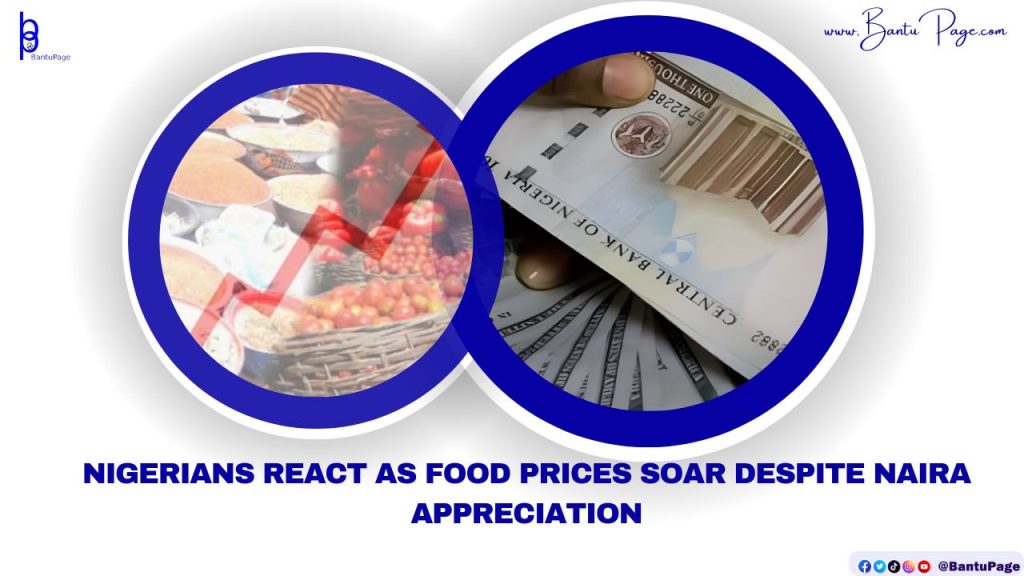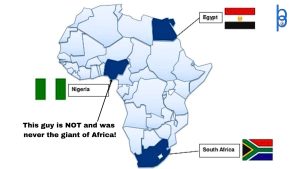
Nigerians react as food prices soar despite naira appreciation
The Nigerian economy has experienced a substantial improvement as the naira has strengthened to N1,300 versus the US dollar, raising optimism for a future economic revival.
This news has provided a sense of comfort to several individuals, particularly following the significant decline in the value of the naira, which reached an unprecedented low of roughly N2,000 against the dollar just a few weeks ago.
The recent gain in value has led to anticipation of a possible decrease in food costs and an increase in food output. Nevertheless, farmers and civil society organisations (CSOs) are perplexed by the fact that this progress has not yet had an impact on food output and pricing.
Although the naira has appreciated by around N700 in the last four weeks, the cost of agricultural inputs remains high, and the lending rates are still unaffordable for farmers. Stakeholders have expressed concern about the potential lack of long-term impact of appreciation on the agriculture industry and food production.
The agricultural industry plays a vital role in Nigeria’s economy, and any variations in this sector can have significant repercussions for the whole economy.
Speaking to journalists, Ibrahim Kabir, the National President of the All Farmers Association of Nigeria (AFAN), highlighted the correlation between a stronger naira and more purchasing power. He underlined that a stronger currency leads to greater food affordability, which is essential for ensuring food security.
He expressed his optimism that farming input expenses would decrease, resulting in lower production costs and making food more accessible to Nigerians.
Kabir proposed that the government should guarantee a consistent provision of energy and provide a conducive atmosphere for production.
He emphasised that energy is a vital element of agricultural production and that any interruption in the energy supply might result in severe consequences for food production.
Daniel Okafor, the National President of the Potato Farmers Association of Nigeria (POFAN), expressed a different opinion, asserting that the increase in the value of the naira has not affected the pricing of food.
Okafor stated that the appreciation of the naira has not had any effect on the price of food in the country.
The food currently available is a result of previous production, during which the acquisition of agricultural inputs was expensive. Due to the appreciation of the naira, farmers purchased their inputs at a significant expense.
Consequently, it is unreasonable to compel them to sell their output at reduced rates.
Andrew Mamedu, the Country Director of ActionAid Nigeria (AAN), recognised the increase in value of the Naira. However, he encouraged the government to reassess the high interest rates on loans and take steps to enhance food production.
The causes contributing to the increase in food costs, as recognised by him, include insecurity, inflation, and high exchange rates.Mamedu stressed the necessity for the government to adopt a comprehensive strategy for tackling the issues confronting the agriculture industry.
This included offering accessible financial assistance to farmers, enhancing security measures, and curbing inflation.
Jamilu Muhammad, the Chairman of the Sokoto State Chapter of the All Farmers Association of Nigeria (AFAN), expressed his concern that the recent increase in the value of the naira has not yet had a positive effect on food production.
He attributed this to the high costs of gasoline and the lack of mechanisation, which are major obstacles.
He emphasized that the currency’s value increase would primarily influence imported food products, and a decrease in pump costs for premium motor spirit (PMS) would be required to have a noticeable effect on food prices.
Muhammad observed that farmers in Sokoto State are encountering notable obstacles, such as exorbitant petrol prices, insufficient mechanisation, and insecurity. He stressed that it is crucial to tackle these difficulties in order to ensure a lasting effect of the appreciation of the naira on food production.
By Nnaemeka Odenigbo






